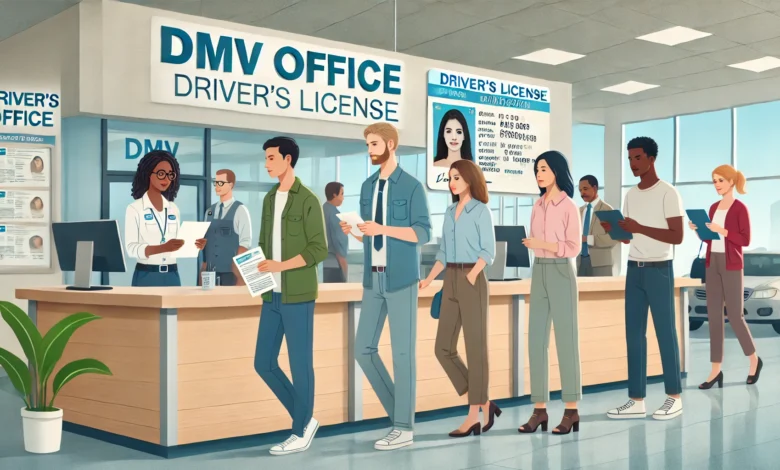Does Your Driver’s License Number Change When You Move to Another State?

When you move to another state, there are plenty of changes to consider, from finding a new home to settling into a different community. Among these logistical shifts is the question of your driver’s license. Does your driver’s license number change when you move to another state? The answer isn’t as straightforward as it may seem, as it largely depends on the rules of the state you’re moving to and their licensing system. Let’s dive into the details and clarify how this process works, what to expect, and how it may affect you.
Do Driver’s License Numbers Change?
The simple answer is that your driver’s license number can change when you move to another state. Some states assign a completely new license number when you transfer your license, while others may retain the number from your previous state. For example, if you move from Texas to California, you’ll be issued a new license with a new number. However, not all states follow the same process, so it’s essential to know how your new state handles license transfers.
The primary reason a driver’s license number might change is that each state has its own database and numbering system. States don’t share the same method of assigning these numbers, which means that when you establish residency in a new state, your driver’s license will reflect that state’s system. Your new license number is often used to link you to local records like traffic violations, driving history, and any state-specific endorsements.
State-by-State Variations
The process of transferring your driver’s license and the potential change in your license number depends significantly on where you’re moving from and where you’re moving to. Here are a few examples of how different states handle the transfer process:
- States That Assign New License Numbers: Most states will issue a brand new driver’s license number when you transfer. For instance, moving to states like California, New York, or Florida means that you’ll get a new license number. These states do not keep the original number from your previous license but instead assign one that fits their system.
- States That Might Retain Your License Number: Some states, such as Maryland, may retain your original license number when transferring from certain states. However, this is less common, as states generally prefer to keep their records separate and align them with their internal systems.
- Reciprocity Agreements: There are states that have reciprocity agreements that allow for a smoother transition in driver’s licensing. This often simplifies the process, but it doesn’t necessarily guarantee that your license number will stay the same.
Since each state has its own regulations, it’s crucial to check the Department of Motor Vehicles (DMV) or the equivalent agency in your new state for the most accurate information on how your driver’s license will be affected by your move.
Why Does Your Driver’s License Number Matter?
Your driver’s license number is more than just an ID—it’s linked to your driving history, traffic records, and legal documents. If your license number changes, here are some potential implications:
- Insurance Records: Your driver’s license number is tied to your car insurance policy. If your number changes after moving to a new state, you’ll need to update your insurance provider to make sure your policy stays current and accurate. This is essential because car insurance rates often differ based on location, driving history, and even the type of license number issued.
- Legal Identification and Records: Your driver’s license is used as a form of legal identification for various purposes, such as opening bank accounts, getting medical treatment, and even renting property. If your license number changes, you may need to update certain records to reflect the new number to ensure consistency across all documents.
- Traffic Violations and Driving History: A change in your license number could mean your driving history is also transferred to a new state. States typically communicate with each other to share records of any violations or endorsements on your license, so don’t expect to leave your driving history behind when you move. If your license number changes, ensure that your driving record is accurately reflected in the new state’s database.
Steps for Transferring Your License to Another State
When you move to a new state, transferring your license should be a priority to ensure you are legally allowed to drive in your new place of residence. Here is a step-by-step guide to make the transition smoother:
- Gather Necessary Documents: Typically, you’ll need your current driver’s license, proof of residency in the new state (such as a lease agreement or utility bill), Social Security card, and proof of identity (like a passport or birth certificate).
- Visit the DMV in Your New State: Once you have the required documents, visit the DMV or the equivalent agency in your new state. It’s advisable to schedule an appointment online if possible to avoid long wait times.
- Pass Required Tests: Some states may require a vision test, written knowledge test, or even a driving test, particularly if your out-of-state license has expired. Be prepared to meet all requirements for transferring your license.
- Pay Applicable Fees: Transferring a driver’s license often comes with a fee, which varies by state. Make sure to check in advance what the costs will be so you’re prepared to pay them during your DMV visit.
- Receive Your New License: After completing the necessary steps, you’ll receive a new driver’s license from your new state. Remember that this license might have a different number than your old one, depending on the state’s rules.
Does Your Driver’s License Number Change When You Move to Another State?
It all depends on the state you’re moving to and their licensing practices. In many cases, your driver’s license number will change when you move to another state, as each state has its own numbering system and database for keeping records. However, some states may retain your original license number, so it’s important to check with the DMV in your new state to confirm how they handle out-of-state transfers.
This change in your driver’s license number can have a ripple effect on your personal records. Car insurance policies, legal documents, and driving history must all be updated to reflect the new license number. Failure to update these records can lead to issues like lapses in insurance coverage, difficulties in identifying yourself for legal purposes, or inaccuracies in your driving history.
Tips for a Smooth Transition
- Update Your Car Insurance: Once you receive your new license, contact your insurance provider to update your information. This ensures your policy is correct and that you have the necessary coverage based on your new state’s requirements.
- Keep Old Records Handy: Retain a copy of your old license, or at least a photo of it, just in case you need to reference the number for any reason after transferring to a new state.
- Know the Timelines: States usually require you to transfer your driver’s license within a specific period after establishing residency, ranging from 30 to 90 days. Make sure to complete this process within the timeline to avoid penalties.
- Check Your Driving Record: After transferring your license, check your driving record to confirm that all your details, including any past traffic violations, have been properly transferred to your new state.
Conclusion
Moving to a new state comes with many changes, and transferring your driver’s license is one of the crucial steps to consider. Does your driver’s license number change when you move to another state? In most cases, it does, but it’s essential to check the specific rules of your new state to understand how they handle license transfers. By staying informed and proactively updating your records, you can ensure a seamless transition and continue driving legally without any hiccups.










